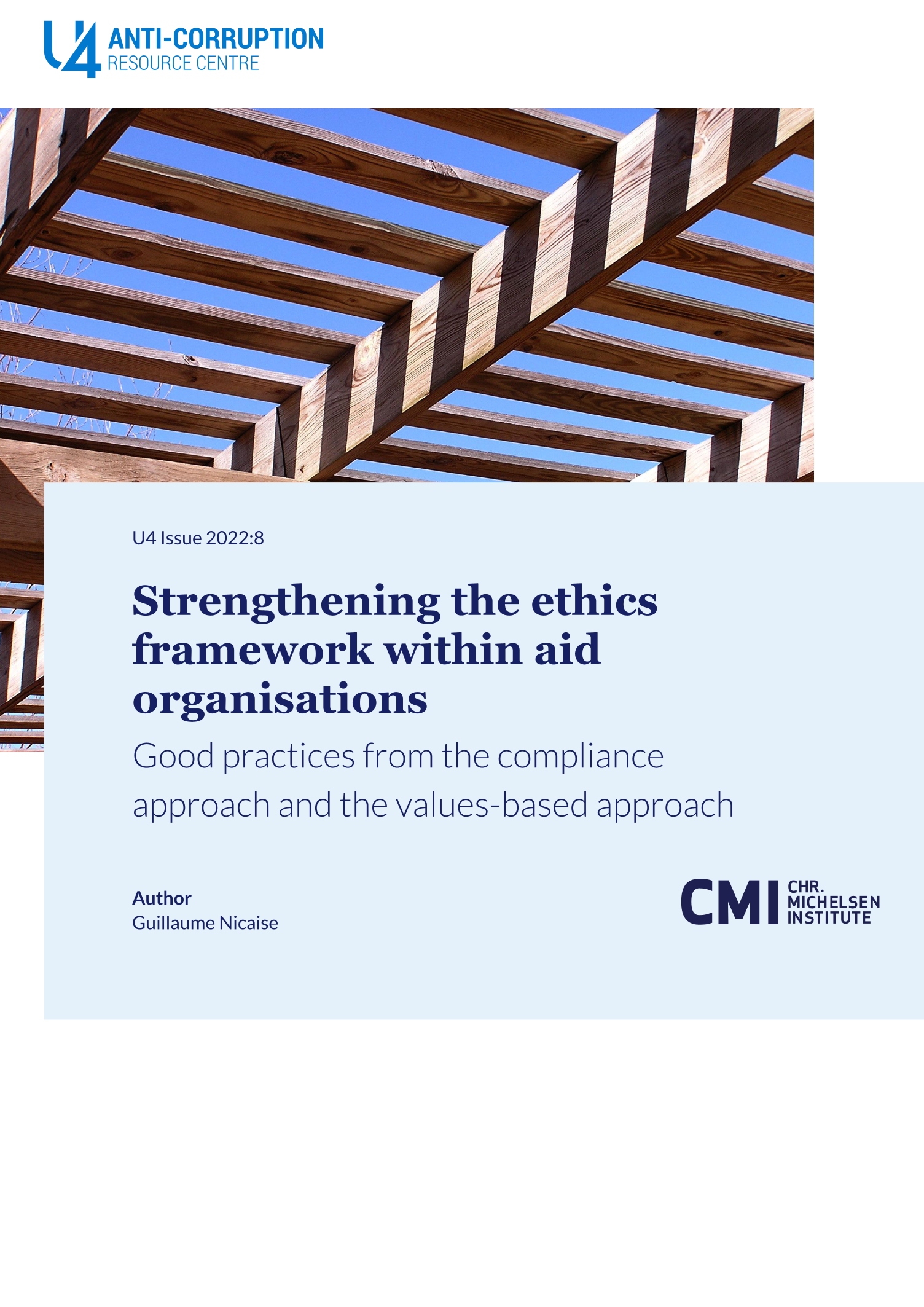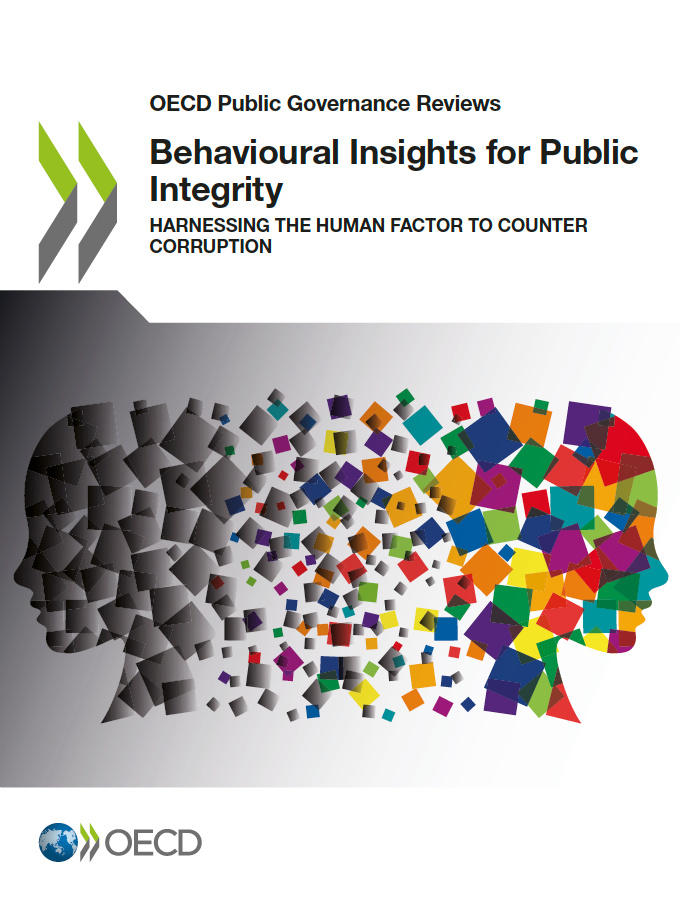Main points
- Ethics policies typically aim to ensuring that the principles of integrity are clear and respected by aid agency staff, and by external partners.
- ‘Organisational integrity’ is an approach used to enhance compliance with ethics policies, and help reduce corruption risks. A common model of organisational integrity has 4 main elements: 1) the quality of rules, procedures and activities of an organisation; 2) the relationship between employees and their organisation; 3) the integrity of employees; and 4) the ethical quality of employees’ interactions.
- Compliance-based approaches are needed to ensure that integrity standards are met by ensuring compliance with rules and processes.
- A values-based approach complements the compliance approach, focusing on a more positive and enabling environment for the internalisation of ethics by employees. It relies on an employee’s capacity to connect with and to act in accordance with the organisation’s principles and values. Values based approaches are used, in particular, to help tackle implicit biases and informal norms, such as gender discrimination.
- The internalisation of ethical norms depends on the control system, the employer-employee relationship, and wider interpersonal interactions. It can be useful to consider different levels for internalisation, from the micro level (personal) to macro levels (group, leadership, and organisation).
- Models such as ‘psychological contracts’ and social norms approach offer perspectives to enhance integrity. They shift focus from the individual to the network in the design of anti-corruption policies as a way to better reflect organisational and social factors related to corruption. They can also connect anti-corruption policies with employees’ well-being and satisfaction at work.



